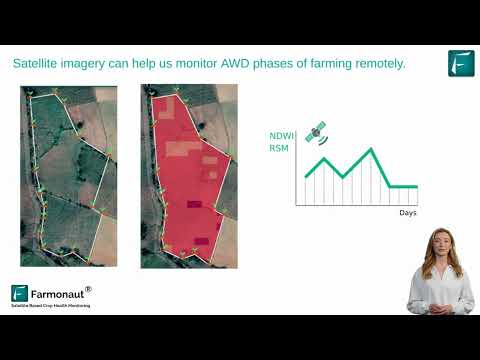Protecting Your Privacy: How Driving Data Collection in Texas Impacts Insurance Rates and Consumer Rights
“Over 90% of modern vehicles collect driving data, potentially impacting insurance rates for millions of Texas drivers.”
In the heart of the Lone Star State, a storm is brewing that could fundamentally change how we think about our privacy on the road. As we navigate the complexities of the digital age, we find ourselves at a crossroads where the convenience of technology intersects with our right to privacy. Today, we’re delving into a topic that affects millions of Texans and could have far-reaching implications for drivers across the nation: the collection and use of driving data by insurance companies.

The Data Privacy Lawsuit That Ignited a Firestorm
In a move that has sent shockwaves through the insurance industry, Texas Attorney General Ken Paxton has filed a lawsuit against Allstate and its subsidiary, Arity. The allegations are as serious as they are startling: the illegal collection of driving data from millions of Texans without their consent. This data privacy lawsuit has opened a Pandora’s box of questions about consumer rights, insurance practices, and the extent to which our daily lives are being monitored.
At the core of this legal battle is the claim that Allstate used Arity to partner with popular apps like Routely, Life360, and GasBuddy. These partnerships allegedly allowed the embedding of tracking software that monitored users’ driving behaviors, including:
- Speed
- Driving times
- Braking patterns
The scale of this data collection is staggering. Reports suggest that the information amassed amounts to trillions of miles driven, affecting over 45 million people nationwide. But what’s even more concerning is how this data was allegedly used: to set insurance premiums and potentially sold to other companies.
The Ripple Effect on Consumers
As this story unfolds, we’re hearing from Texans who are directly impacted by these practices. Take Adrian Thomas, a rideshare driver in Austin, who expressed deep frustration over the potential repercussions of this data collection on insurance rates. For gig workers like Adrian, insurance is not just a legal requirement—it’s a lifeline that ensures they can continue to earn a living.
“My job depends on my insurance,” Adrian told us. “The idea that some company might be collecting data about my driving without my knowledge, and then using that to potentially raise my rates? That’s not just shady, it’s terrible.”
Adrian’s concerns underscore a broader issue: the lack of transparency in how insurance companies set their rates. If the allegations in this lawsuit are proven true, it could mean that many Texans are paying higher premiums based on data they never knew was being collected.
The Legal Landscape
To get a clearer picture of the legal implications, we spoke with Dallas appellate lawyer Chad Ruback. He emphasized that while the allegations are serious, they remain unproven at this stage. “As the case unfolds in court, we’ll get a more accurate picture of what actually happened,” Ruback explained.
However, if Paxton’s allegations are substantiated, it could signify a breach of the Texas Data Privacy and Security Act. The lawsuit insists that individuals were not informed of or did not consent to the use of their data—a key requirement under Texas law.
Allstate, for its part, claims that Arity operates with consumers’ consent and adheres to legal regulations. But the lawsuit paints a different picture, outlining how Arity allegedly compensated app developers to create features that would gather extensive consumer data.
The Broader Implications
Michael Delong of the Consumer Federation of America highlighted the extensive implications of such data collection. It’s not just about insurance premiums; the sale of consumer data could lead to higher prices for various products across the board.
This controversy extends beyond the realm of insurance. It touches on fundamental questions about data privacy in the digital age. As we increasingly rely on apps and smart devices, we must ask ourselves: At what point does convenience come at too high a cost to our privacy?
Andie Gazaille, an Austinite who uses Life360, voiced her discontent with these practices, calling for greater transparency in how companies track user information. Her sentiment echoes a growing demand among consumers for clear, understandable terms of service and data usage policies.
“Unauthorized driving data collection could affect up to 70% of gig economy workers, including rideshare drivers in Texas.”
The Gig Economy’s Vulnerability
The impact of these data collection practices is particularly acute for gig economy workers. Rideshare drivers, delivery personnel, and other independent contractors often operate on thin margins. Their livelihoods depend on maintaining affordable insurance rates. If their driving data is being used to influence insurance decisions without their knowledge or consent, it could have devastating consequences.
We spoke with several gig workers in Austin who expressed concern about how this lawsuit might affect their ability to work. Many were unaware that their driving data could be collected through apps unrelated to their work platforms. This lack of awareness highlights the need for better education and transparency around data collection practices.
The Role of Smart Vehicle Technology
As we delve deeper into this issue, it’s crucial to consider the role of smart vehicle technology in data collection. Modern vehicles are essentially computers on wheels, capable of collecting vast amounts of data about our driving habits, locations, and even our in-car conversations.
This isn’t the first time Attorney General Paxton has taken action on this front. A previous lawsuit against General Motors alleged that the company was collecting and reselling driving data through smart vehicle technologies. As these technologies become more prevalent, the need for clear regulations and consumer protections grows ever more urgent.

Comparative Analysis of Data Privacy Concerns in Vehicle Tracking
| Scenario | Data Type Collected | Potential Impact on Insurance Rates | Consumer Rights Concerns | Legal Implications |
|---|---|---|---|---|
| Traditional Insurance Models | Basic demographic and claims history | Low (0-5% increase) | Low | Minimal legal risk |
| Usage-Based Insurance Programs | Detailed driving behavior (speed, braking, mileage) | Medium (5-10% increase or decrease) | Medium | Moderate risk if consent is unclear |
| Rideshare/Gig Economy Drivers | Comprehensive driving patterns, locations, work hours | High (10-20% potential increase) | High | Significant risk, potential labor law implications |
| Smart Vehicle Data Collection | All of the above plus vehicle diagnostics, in-car activities | Very High (15-25% potential increase) | Very High | High risk, potential for multi-state lawsuits |
This table illustrates the escalating concerns as we move from traditional insurance models to more data-intensive approaches. It’s clear that as the sophistication of data collection increases, so do the potential impacts on consumers and the legal risks for companies.
The Path Forward: Balancing Innovation and Privacy
As we grapple with these issues, it’s important to recognize that data collection isn’t inherently negative. When used responsibly and with full transparency, it can lead to more personalized services and potentially lower rates for safe drivers. The challenge lies in striking the right balance between innovation and privacy protection.
We reached out to several tech companies and insurance providers for comment on this issue. While many declined to speak on the record due to the ongoing litigation, there was a general consensus that the industry needs to do better in communicating with consumers about data collection practices.
One anonymous executive from a major tech firm told us, “We’re at a critical juncture. The companies that will thrive in the future are those that can innovate while maintaining the trust of their users. That means being upfront about data collection and giving users real control over their information.”
Consumer Advocacy and Education
In light of these developments, consumer advocacy groups are stepping up their efforts to educate the public about data privacy rights. Organizations like the Consumer Federation of America are pushing for stronger regulations and more transparent practices from both insurance companies and app developers.
Delong from the Consumer Federation of America advises consumers to be vigilant: “When services are offered for free but involve data collection, users need to understand that they might be the product. This can lead to adverse financial consequences down the line.”
Here are some steps consumers can take to protect their privacy:
- Regularly review app permissions on your smartphone
- Read terms of service agreements carefully before accepting
- Opt-out of data sharing whenever possible
- Use privacy-focused alternatives to popular apps when available
- Stay informed about data privacy laws in your state
The Future of Data Privacy Regulations
Legal experts like Ruback anticipate that data privacy will remain a central focus in the legal landscape. We can expect to see an influx of similar lawsuits as consumers and regulators grapple with the implications of data tracking practices.
At the state level, Texas lawmakers are considering additional legislation to strengthen consumer protections. At the federal level, there are ongoing discussions about creating a comprehensive national data privacy law, similar to the European Union’s General Data Protection Regulation (GDPR).
As these legal frameworks evolve, companies will need to adapt their practices to ensure compliance and maintain consumer trust. This may lead to more transparent data collection policies, improved opt-out mechanisms, and greater consumer control over personal information.
The Role of Technology in Protecting Privacy
While technology is at the heart of these privacy concerns, it may also offer solutions. Innovations in blockchain and decentralized data storage could provide more secure and transparent ways to handle consumer information. Some startups are already working on developing “privacy-first” alternatives to popular apps and services.
For those interested in leveraging technology for agricultural purposes, Farmonaut offers innovative solutions that respect user privacy. You can explore their services through their web app, Android app, or iOS app.
The Economic Impact
The outcome of this lawsuit and similar legal actions could have significant economic implications. Insurance companies may need to overhaul their data collection and pricing models, potentially leading to short-term increases in premiums as they adjust. Tech companies might face increased scrutiny and compliance costs, which could slow innovation in some areas.
However, there’s also potential for new economic opportunities. Companies that can demonstrate strong privacy practices may gain a competitive advantage. We could see the emergence of a new industry focused on privacy-enhancing technologies and services.
Global Context
While this lawsuit is centered in Texas, the issues it raises are global in nature. Countries around the world are grappling with similar questions about data privacy and consumer rights. The European Union’s GDPR has set a high bar for data protection, and many other nations are following suit with their own regulations.
As companies operate across borders, they’ll need to navigate an increasingly complex patchwork of privacy laws. This could lead to the adoption of stricter global standards to ensure compliance across all markets.
Conclusion: A Watershed Moment for Consumer Privacy
As we wrap up our exploration of this complex issue, it’s clear that we’re at a watershed moment for consumer privacy. The outcome of this lawsuit in Texas could set important precedents for how driving data is collected and used across the United States.
The controversy underscores the critical importance of consumer consent and transparency in data handling. As digital technology becomes ever more integrated into our daily lives, we must remain vigilant about protecting our personal information.
For consumers, this means staying informed, asking questions, and being proactive about privacy settings. For companies, it means prioritizing transparency and giving users genuine control over their data. And for policymakers, it means crafting regulations that protect consumer rights while still allowing for innovation.
As we move forward, let’s remember that privacy is not just a legal issue—it’s a fundamental right. By working together, we can create a digital future that respects individual privacy while still harnessing the power of data to improve our lives.
FAQ Section
- Q: How can I check if my driving data is being collected?
A: Review the privacy policies and permissions of any apps you use while driving. Check your vehicle’s manual for information on built-in data collection systems. You can also contact your insurance provider directly to ask about their data collection practices. - Q: Can I opt out of data collection by my insurance company?
A: Many insurance companies offer the option to opt out of usage-based insurance programs. However, some data collection may be mandatory. Contact your insurer for specific opt-out options. - Q: How might this lawsuit affect my insurance rates?
A: It’s too early to predict the exact impact. If the lawsuit results in changes to data collection practices, it could affect how insurance companies set rates. This could lead to rate adjustments for some consumers. - Q: What should I do if I suspect my data has been collected without my consent?
A: Document your concerns and contact the company in question. If you’re not satisfied with their response, you can file a complaint with your state’s attorney general’s office or the Federal Trade Commission. - Q: How can I protect my privacy while using driving-related apps?
A: Be selective about which apps you use and review their privacy settings carefully. Consider using privacy-focused alternatives and regularly update your app permissions.
Earn With Farmonaut: Join Farmonaut’s affiliate program and earn 20% recurring commission by sharing your promo code and helping farmers save 10%. Onboard 10 Elite farmers monthly to earn a minimum of $148,000 annually—start now and grow your income!
As we continue to navigate the complex landscape of data privacy and consumer rights, staying informed and proactive is key. Remember, your data is valuable—treat it with the care it deserves.



